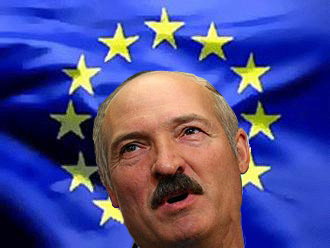European Union might suspend sanctions against Lukashenka and his companions

A formal decision could come as soon as the next week.
The European Union is likely to lift some sanctions on Belarus, including its travel ban on President Aliaksandr Lukashenka, after he freed a group of political prisoners last month, REUTERS informs.
A formal decision could come next week at a meeting of EU diplomats. It could involve officially extending the sanctions, which expire on Oct. 31, but suspending their application for a year.
However, some diplomats prefer to wait until after Belarus' elections on Oct. 11, which Lukashenka is expected to win.
The basis for reconsidering the sanction regime could be the pardoning of six jailed opposition figures, including Mikalai Statkevich, in August and his hosting of peace talks for Ukraine in February.
-
03.01
-
07.10
-
22.09
-
17.08
-
12.08
-
30.09








































